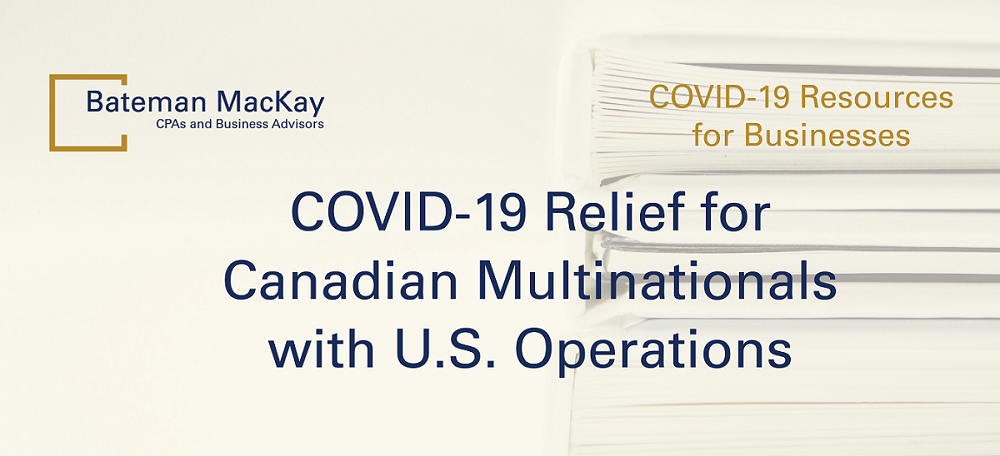
The U.S. response to the COVID-19 pandemic may impact Canadian business owners with U.S. operations. The measures include temporarily reducing tax payments of corporations, allowing refunds of taxes paid in previous years and access to payroll loans with favourable terms.
U.S. Federal income tax returns originally due on April 15, 2020 have now been extended to July 15, 2020. The payment of taxes has also been deferred to July 15, 2020. During the deferral period, no penalties or interest will accrue.
The Internal Revenue Service (IRS) is allowing corporate taxpayers to fully deduct losses arising this year against previous years profits after they temporarily repealed a tax change that imposed an 80% of taxable income limitation on Net Operating Loss deductions for all tax years beginning prior to January 1, 2021. In addition, a five year carry back of losses arising in tax years beginning in 2018 until, but before 2021 will be permitted.
The interest deduction rate for corporations is increased from 30% to 50% of Adjusted Taxable Income (ATI) for taxation years beginning in 2019 and 2020. Taxpayers may also elect to use their 2019 ATI to compute the interest deduction on their 2020 tax return.
AMTCs are fully refundable for the 2018 and 2019 taxation years.
The ERC represents a credit against a qualified employer’s employment taxes for up to $10,000 in wages per employee paid during a time when the employees’ services are not needed or not available due to CVOID-19 restrictions. To qualify, an employer must have partially or fully suspended their business due to government orders or have a 50% decrease in gross receipts over the same quarter in the prior year. This credit is limited to 50% of actual wages paid between March 12, 2020 and January 1, 2021.
Employers and the self-employed can defer paying their share of the Social Security tax for the remainder of 2020. They must pay the deferred amounts in two equal installments by December 31, 2021 and December 31, 2022.
The PPP provides small business with loans than can be up to 2.5 times the borrower’s average monthly payroll costs, to a maximum of $10 million. Payroll costs include salaries, bonuses, retirement benefits, parental leave and health care benefits. Small businesses with fewer than 500 employees, including non profits, sole proprietorships, self-employed individuals, independent contractors and veteran organizations are eligible to apply on a first come first served basis commencing on Friday April 3. The portion of employee salary in excess of $100,000 is excluded in the calculation.
If the funds from the loan are used for expenses relating to payroll, mortgage interest, rent or utilities in the eight weeks after signing the loan, with documented proof, the loan principal can be forgiven. A 0.5% fixed interest rate will be applied.
Application for these is made at U.S. financial institutions that already offer Small Business Administration loans.
In order to be eligible for this loan, all shareholders or business owners with a 20% interest or greater in the business must be U.S. citizens or have lawful Permanent Resident status in the U.S.
In order to be eligible for this loan, all 20% or greater owners must be U.S. citizens or have Lawful Permanent Resident status.
Sign up for our newsletter and receive tax, accounting, and business advisory resources for your business!